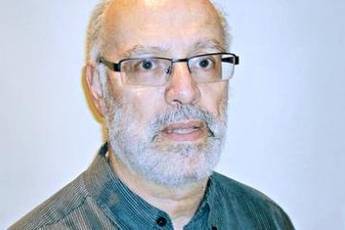Learn about the history of the Palestinian struggle for freedom, equality and justice by exploring major events in the history of their oppression on this day of the year.
25 March
 ZIONIST ANTI-SEMITISM ATTACK ENDS IN DISASTROUS DEFEAT
ZIONIST ANTI-SEMITISM ATTACK ENDS IN DISASTROUS DEFEAT
On this day in 2013, a high-powered employment tribunal fiercely criticised an academic who claimed the University and College Union’s policy on Palestine constituted harassment. All of his ten claims of harassment were “dismissed in their totality”. The judges rejected the complaint as “an impermissible attempt to achieve a political end by litigious means” and a case which showed a “worrying disregard for pluralism, tolerance and freedom of expression”.
اتهام الصهاينة للآخرين بمعاداة السامية انتهى بهزيمة كارثية لهم
25 مارس
في مثل هذا اليوم من عام 2013 ، انتقدت محكمة توظيف رفيعة المستوى بشدة أكاديميًا ادعى أن سياسة اتحاد الجامعات والكليات بشأن فلسطين تشكل مضايقة. وقد تم "رفض جميع ادعاءاته العشرة المتعلقة بالمضايقة". ورفض القضاة الشكوى ووصفوها بأنها "محاولة غير مسموح بها لتحقيق هدف سياسي بالوسائل القضائية" وقضية أظهرت "استخفافاً مقلقاً بالتعددية والتسامح وحرية التعبير".
A Jewish academic, founding director of Academic Friends of Israel, claimed the UCU’s policy on Palestine constituted harassment. He has been rebuked by an employment tribunal for misusing the legal process.
Further education lecturer Ronnie Fraser argued that the UCU was institutionally anti-Semitic owing to motions passed in favour of a boycott of Israel. Despite enlisting the services of Anthony Julius, best known as Diana, Princess of Wales’ divorce lawyer and a partner at Mishcon de Reya, all of his 10 claims of harassment have been “dismissed in their totality”.
How a London court Repudiated Zionist Abuse of the Anti-Semitism Charge
Taunting and tainting opponents with the charge of anti-semitism is a long-standing Zionist ploy, familiar to everyone involved in the Israel-Palestine issue. As their support weakens in the face of evidence-based argument, Israel’s advocates have stepped up their use of the accusation as a means to close down debate, particularly on proposals for boycott, divestment and sanctions.
A key component in their armoury is what’s been called “lawfare”: attempts to use the courts to stifle opponents. This strategy, which has been employed in the US, France and Britain, suffered a significant reverse at the end of March, when an Employment Tribunal in London comprehensively rejected a claim made by Ronnie Fraser, of Academics for Israel, against his union, the University and College Union.
Scottish Palestine Solidarity Campaign had two links to the Fraser v UCU victory. The UCU case builds on a precedent in 2010 in an Edinburgh Court that was equally a disaster for those working to conflate anti-semitism with anti-Zionism. The UCU legal team cited in its defence the 2010 judgement on five SPSC members similarly accused of “racism” after acting in solidarity with Palestine who had all charges thrown out, while the legal officials who brought the charges were ridiculed in open court for their efforts to restrict rights to free speech. It is worth remembering that a Zionist success in Edinburgh in 2010 would have made the uttering of the words “End the siege of Gaza” a criminal offence.
2-minute video: what the Zionist anti-semitism smears are trying to cover up
